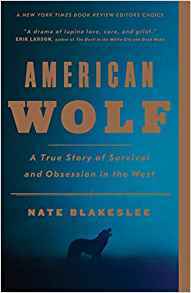As a result, the residents of a place like Idaho, where fully two-thirds of the land is federally owned, don’t make decisions about how the resources in their own backyards should be used. Instead agencies like the U.S. Forest Service and the Bureau of Land Management call the shots from Washington, and people all over the country—even those who visit a place like Yellowstone or the Grand Canyon only once in their lifetimes—feel that they should have a say in how the West is managed, because it belongs to them just as much as anybody who actually lives there.
How does this differ from the level of national interest West Virginia land has with coal? How has West Virginia’s lack of eco tourism changed the national landscape among politicians as a national park was brought in? How do National Parks advocate for the land ethic and in what ways has eco tourism gone against it? Think: Rise in Elk population as a means to draw tourists


